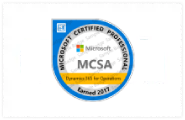In the dynamic world of modern business, keeping up with the latest technology is not just a luxury – it’s a necessity for survival and growth. For small business owners, this means investing in robust Enterprise Resource Planning (ERP) software that can streamline their processes, cut costs, and drive productivity. Enter Dynamics 365 Business Central, Microsoft’s solution designed to be the command center for your small business.
With a promise to make your operations more efficient, your data more insightful, and your decisions more strategic, Dynamics 365 Business Central is more than just software. It’s a game-changer for businesses of any size, especially those looking to scale up. But navigating the world of ERPs can be complex, so here’s your comprehensive guide to weaving your path to business excellence with Dynamics 365 Business Central.
What is Dynamics 365 Business Central?
An Overview of the Engine Behind Business Excellence
At its core, Dynamics 365 Business Central is an all-in-one business management solution that is easy to use and adapt, helping you connect your business and make smarter decisions. From financials and sales to operations, inventory, and project management, Business Central has the tools to organize, grow, and track your business at every step.
Built on the robust platform of Microsoft Dynamics NAV, Business Central is cloud-based, which means you can access your data from anywhere, on any device. This cloud-first approach not only ensures your business stays agile but also delivers enterprise-level security to protect your company’s most valuable asset – its data.
Core Modules and Features
Unpacking the Core Functions of Business Central
A good ERP should act as a single source of truth for your organization. Business Central excels at this, with a range of features that cater to every aspect of your business. Its core modules include:
Financial Management
From managing cash to analyzing your financial information, this module provides everything a finance team needs, including:
- General Ledger
- Budgets
- Cash flow forecasts
- Bank Reconciliation
Supply Chain Management
Maintain the right amount of inventory by automatically calculating stock levels, lead times, and reorder points that work for your business.
Project Management
Plan your projects, track progress, and create forecasts accurately. With insights from past projects, you can better estimate timelines and manage resources without overallocating.
Sales and Service
Get a complete picture of your sales cycle and track all customer interactions in a central location. Offer better service to your customers by managing and tracking their support cases.
Reporting and Analytics
Make data-driven decisions by setting up reports and dashboards. With the powerful data analytics in Business Central, you can easily spot trends and gain insights into your business performance.
These modules work seamlessly together to streamline your operations and provide valuable insights, empowering you to manage with confidence and clarity.
Integration Capabilities
The Power of Connected Solutions
The true strength of an ERP lies in its ability to integrate various aspects of your business. Business Central connects with other Microsoft cloud services, including Office 365, and can be customized or extended for specific industry needs with Power Apps, Microsoft Flow, and Power BI.
Third-party apps and add-ons from the Dynamics 365 Marketplace further extend Business Central’s capabilities to include functions like payroll processing, advanced inventory management, and e-commerce integration. This integration allows for a tailored experience that can evolve with your business.
Customization and Scalability
Tailoring Business Central to Fit Your Unique Requirements
One of the key benefits of Business Central is its flexibility in terms of customization and scalability. No two businesses are alike, and Business Central offers a range of tools to tailor the software to your specific needs.
Within the application, you can build custom fields, automate tasks with workflows, and create user-defined fields without coding. This ability to adapt the system ensures it aligns with your unique business processes.
Business Central is also scalable, growing with your business by adding users and functionalities as you need them. This lets you manage your costs effectively, ensuring that you only pay for what you use.
Real-World Applications
Harnessing Business Central for Success
The beauty of Business Central lies in its practical applications. Imagine a retail business that needs to manage inventory across multiple locations. Business Central can provide a real-time view of inventory levels, track sales and purchases, and automate reordering processes, all under one platform.
Or consider a professional service business that has complex billing and multiple projects running simultaneously. Business Central can help manage resources, track project profitability, and streamline invoicing, ensuring that no revenue slips through the cracks.
Getting Started with Business Central
Your Comprehensive Guide to Implementation
Adopting a new ERP system can be daunting, but with the right guidance, it’s a smooth process. Here are some steps to get started with Business Central:
1. Decide on Your Implementation Approach
Business Central offers two main implementation paths: via a “sandbox” to tinker with all the features until you’re ready for a full launch, or a rapid start approach where you begin using the software with a minimum set of features and then build on it.
2. Choose the Right Partner
Picking a certified Microsoft partner is crucial. They provide expert advice on all aspects of the product, from licensing to customization.
3. Data Migration
Moving your data into Business Central is a critical step. It’s best to clean your data before migrating and ensure it fits Business Central’s format and structure.
4. Training
The success of any ERP system depends on how well it’s utilized. Training your team on the ins and outs of Business Central is key for a successful implementation.
Conclusion: Transforming Business Operations
The Promise of Dynamics 365 Business Central
The diversity of features, the simplicity of use, and the promise of enhanced productivity and informed decision-making make Dynamics 365 Business Central an invaluable asset for businesses. By centralizing your data and automating your processes, Business Central can transform your operations and lead your business to new heights of efficiency.
The Next Steps in Your Business Central Journey
Whether you’re just starting to consider an ERP system or looking to upgrade your existing one, Dynamics 365 Business Central offers a world of possibilities. Take the next step in your ERP journey by exploring Business Central further. Schedule a demo, read customer testimonials, or reach out to a Microsoft Consultation Partner to chart a course for your business’s future with Dynamics 365 Business Central.







